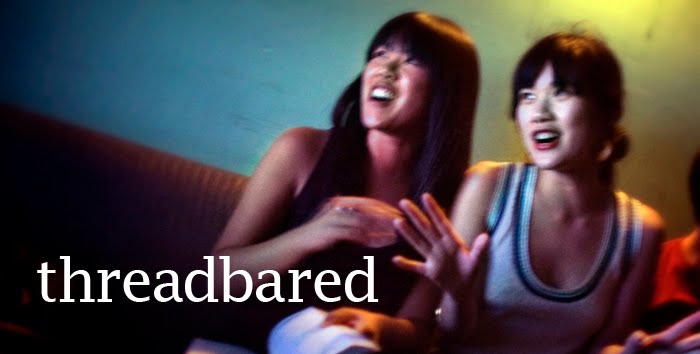 Despite the pessimism of Part II, there are plenty of things to be excited about with regard to fashion/style blogging. Although real and constructed divisions remain between what counts as legitimate/professional writing and amateur blathering, the lines between them are increasingly blurred. Bloggers do produce knowledge and opinions about fashion, style, design, and modes of consumption that the fashion industry, independent designers, retail firms, and advertisers have good reason to heed especially since some blogs get as many as 15,000-20,000 hits per day. It is due to the industry’s recognition of bloggers’ informal but no less powerful influence and insight that fashion and design firms are turning to bloggers as knowledgeable fashion enthusiasts. In this way, bloggers play a crucial role in producing and shaping culture.
Despite the pessimism of Part II, there are plenty of things to be excited about with regard to fashion/style blogging. Although real and constructed divisions remain between what counts as legitimate/professional writing and amateur blathering, the lines between them are increasingly blurred. Bloggers do produce knowledge and opinions about fashion, style, design, and modes of consumption that the fashion industry, independent designers, retail firms, and advertisers have good reason to heed especially since some blogs get as many as 15,000-20,000 hits per day. It is due to the industry’s recognition of bloggers’ informal but no less powerful influence and insight that fashion and design firms are turning to bloggers as knowledgeable fashion enthusiasts. In this way, bloggers play a crucial role in producing and shaping culture.Further, the burgeoning numbers of academic fashion/style blogs—blogs maintained by cultural and social theorists—demonstrate the blurring of lines between academic and public discourse. Threadbared, as with some of our favorite academic fashion/style blogs such as LipstickEater, Fashion Projects, and Fashion for Writers intends to bring intellectual praxis out of academia and into everyday sites of culture, feelings, and sociality. Simultaneously, as we discussed in an earlier post focusing on the uneasy relationship between fashion and academia, academics who blog about fashion or other arenas of popular culture, demonstrate the diversity and heterogeneity of scholarly modes of production as well as reveal how the personal and the informal (i.e., feelings and fixations) constitute rather than inhibit intellectual engagements. Unfortunately, research on the politics of blogging and the blogosphere rarely attend to blogs about fashion and instead focus on political blogs, first and foremost. Blogging during the 2004 Democratic and Republican National Conventions is an especially popular subject. Because mainstream political blogs are predominantly maintained by men, these scholars skew the actual picture of the blogosphere making it seem male-dominated when we know from demographics research that slightly more women have blogs than men (though most researchers agree that the difference is so small that it is statistically insignificant) and most female-run blogs are maintained for longer periods of time.
A narrow understanding of political participation misses the heterogeneous and informal modes of cultural politics that many people who feel disenfranchised from formal politics participate in as well as denies the organizational and mobilizing power of blogs for youth, artists, and diasporic communities. Moreover, it tacitly reinscribes a “separate spheres” division between consumption/production and culture/politics that have historically been organized in gendered terms. In these studies, the blogger is a politically efficacious subject—if they are granted political consciousness at all—only when they are blogging about “formal” politics (electoral politics, etc.). The ideal blogger is imagined in relation and resemblance to the ideal (male) political worker. Not only is the political work of culture unintelligible in this framework, culture is implicitly connected to (women’s) mass deception and mass consumption. For example, Jodi Dean argues that bloggers “[believe] in the importance of their contributions, presuming that there are readers for their blogs” and that this communication makes a difference when in fact, such practices, though pleasurable, “displace political energy from the hard work of organizing and struggle.” While Dean believes that pleasure and politics are mutually exclusive, Nan Enstad’s fabulous study of the ways in which 19th century working women used cultural practices like dressing fashionably and reading romance novels “to lay claim to dignified identities as workers . . . [and] to claim formal political status” is exemplary of how cultural practices and political praxis have long been intertwined.
Blogging about fashion and style, like fashion itself, can be (and absolutely has been for us) an immensely joyful endeavor because we get to think about fashion and engage with both academic and nonacademic linkers and thinkers across the globe whose intellectual curiosities fuel ours. These pleasures and cultural practices are not insignificant even while they are circumscribed and clipped by the hierarchical and capitalist structures of the internet outlined by Dean. The question may not be whether blogging and the internet is democratic but rather how have fashion/style bloggers, even within difficult and anti-democratic conditions, produced meanings and practices about political action, self-construction, material and immaterial consumption in a context of global neoliberal capitalism, and the politics of sociality that change or clarify dominant systems of race, gender, sexuality, and class?
Return to On the Fashion/Style Blog: Intro
Return to OF/SB, part I: Going Postal
Return to OF/SB, part II: Blog in the Machine of Democracy



